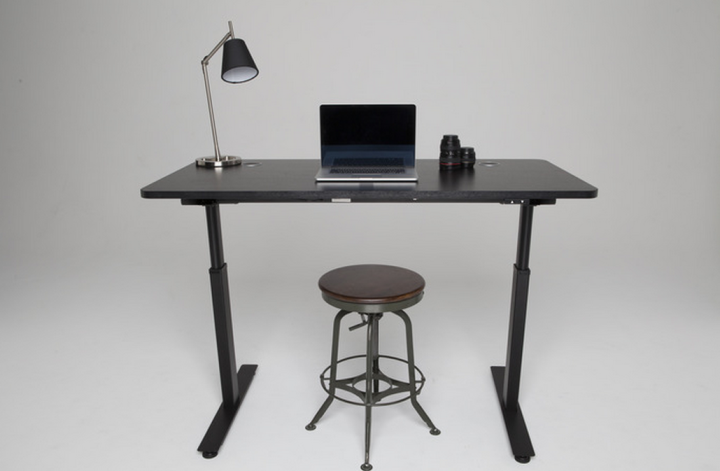
In case you missed the memo, standing desks are the bees knees. Not only are they trendy, hip, and modern; they also might just save you from an early grave. Over the past few years, there’s been a growing collection of research which suggests that sitting hunched over in an office chair for prolonged periods of time is hazardous to your health. Sitting for eight hours a day has been shown to cause lower back problems, slowed metabolism, increased risk of diabetes and heart disease, and a myriad of other problems.
Standing desks offer a solution to this problem, but there’s one big problem holding most people back from getting them: most standing desks (all the good ones, anyway) are ridiculously expensive. You can save some money if you build one yourself, or opt for a budget model, but the motorized type that can automatically be raised or lowered with the push of a button almost always cost over $1,000. Poke around the Web for a bit, and you’ll be hard pressed to find one that doesn’t cost an arm and a leg.
Now, thanks to a recently-launched Kickstarter project, there’s finally a motorized model that’s affordable. The Stand Desk is currently up for pre-order on Kickstarter for the early-bird pre-retail price of just $400, which is less than half of what you’d pay for similar products in this category.
So why is the Stand Desk so much cheaper than the competition? For starters, this is the Kickstarter price, and crowd-funding projects typically offer a lower price if you’re willing to be an early adopter. Additionally, and perhaps more importantly, the Stand Desk’s creator, Steven Yu, spent years designing a customized motor for the desk which balances reliability, power, and price. Most other desks use two motors to give you lifting power of over 500 pounds, which, aside from being completely unnecessary, tends to drive up the cost of the desk substantially. There’s no point in paying extra for something you don’t need, so Yu built his desk with a single, high-efficiency electric motor that’s capable of lifting up to 225 pounds. Assuming you don’t have four computer towers and a collection of lead paperweights on your desk, that should be more than enough lifting power.
The project has already shattered its initial $50,000 funding goal (which it reached a mere 38 minutes after launch), and is currently just a few grand shy of $200,000 with 43 days left in the campaign. The most basic version will set you back about $400 if you back the project now, and more deluxe versions with higher-quality woods and finishes will run you anywhere from $500 to $650.
Find out more here.



